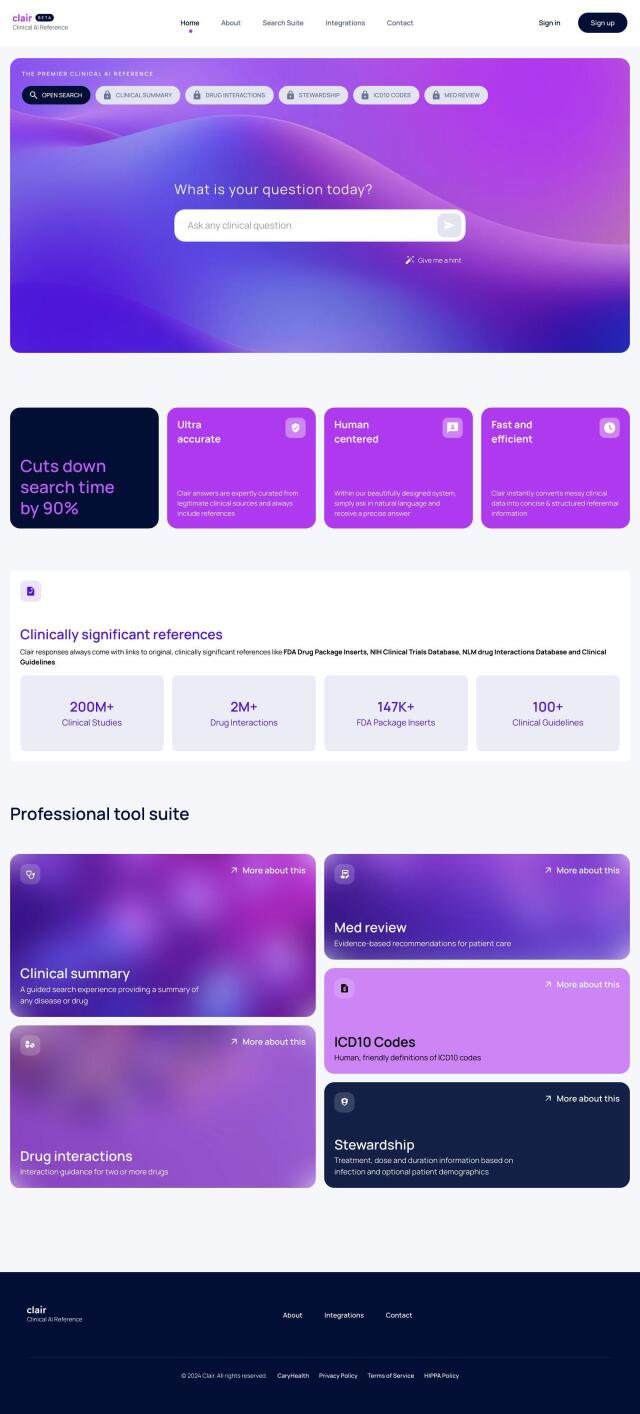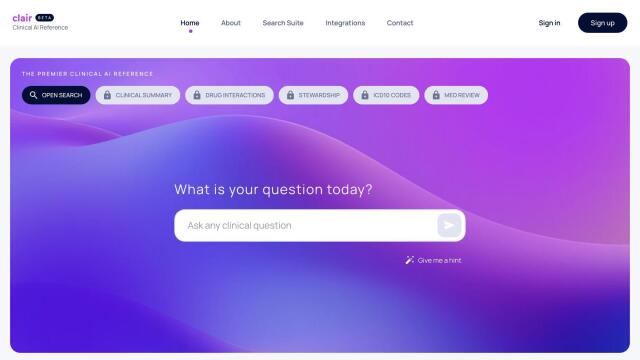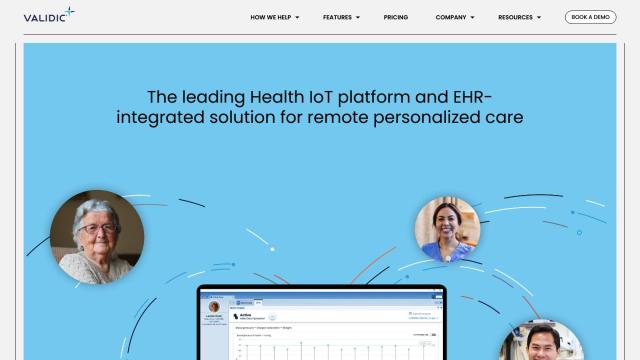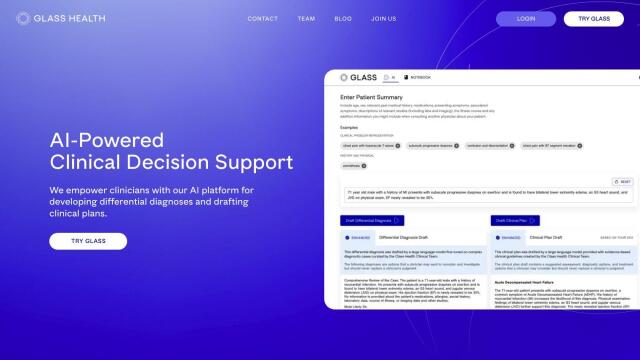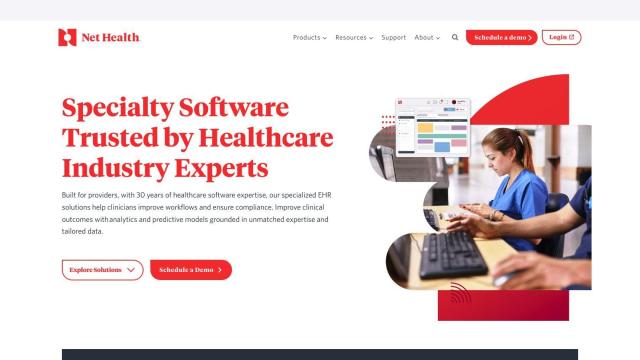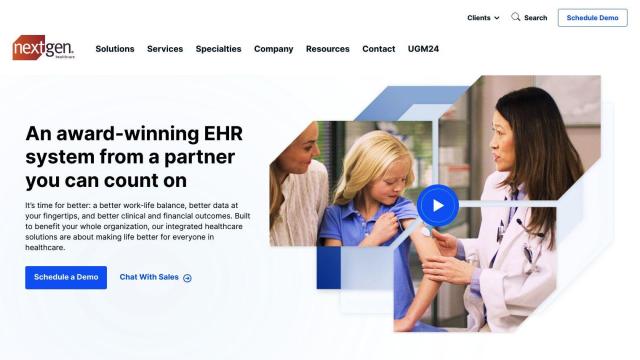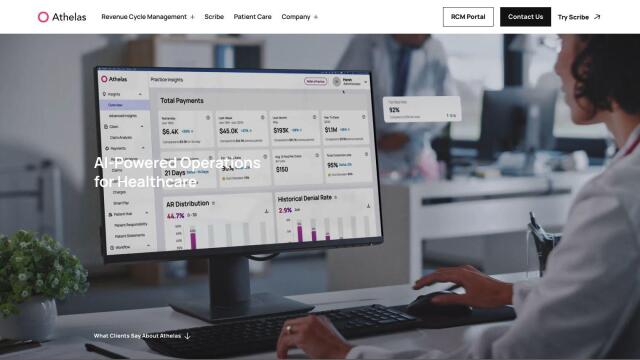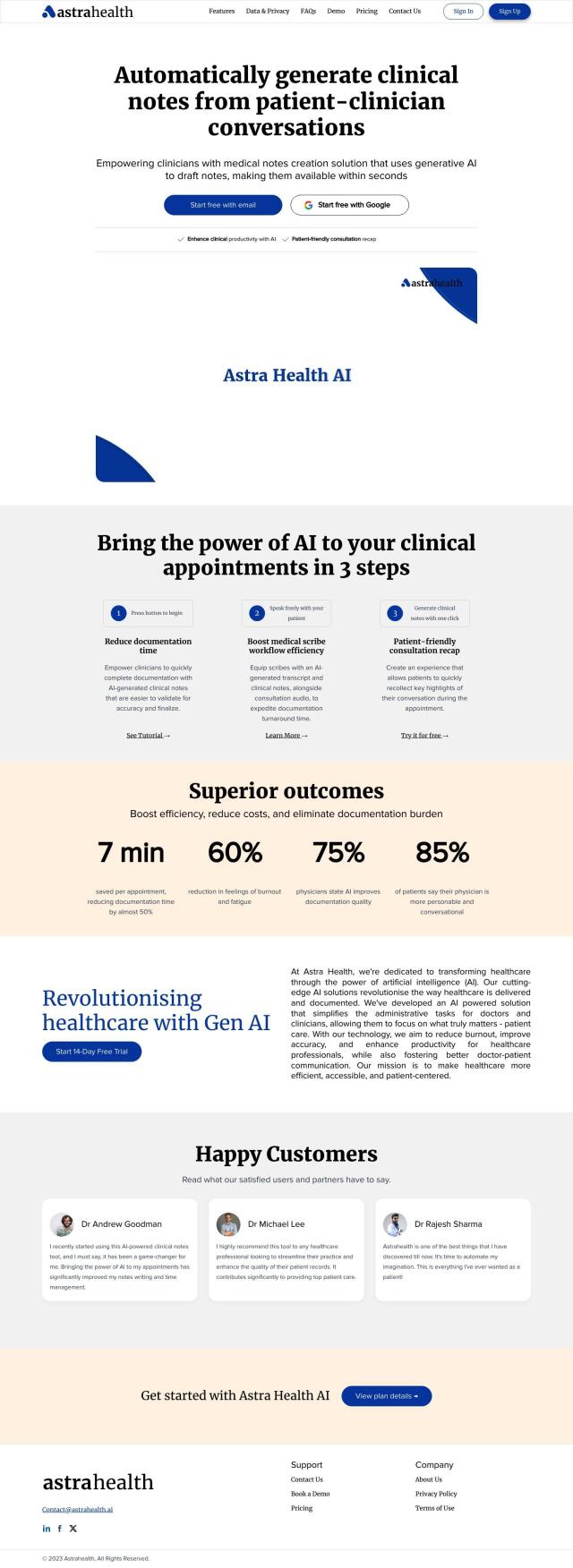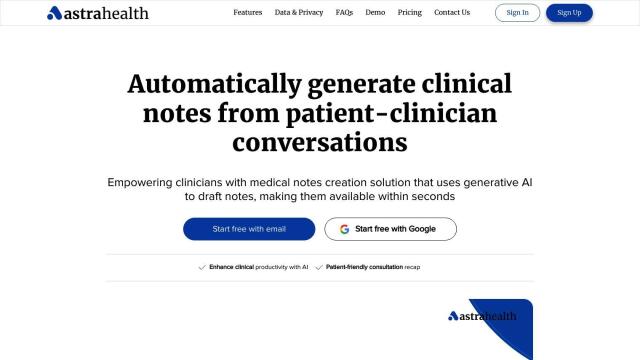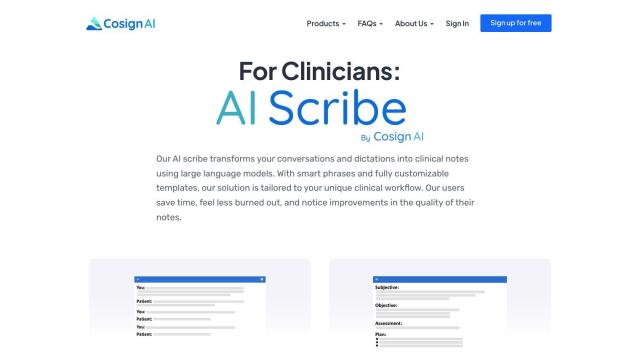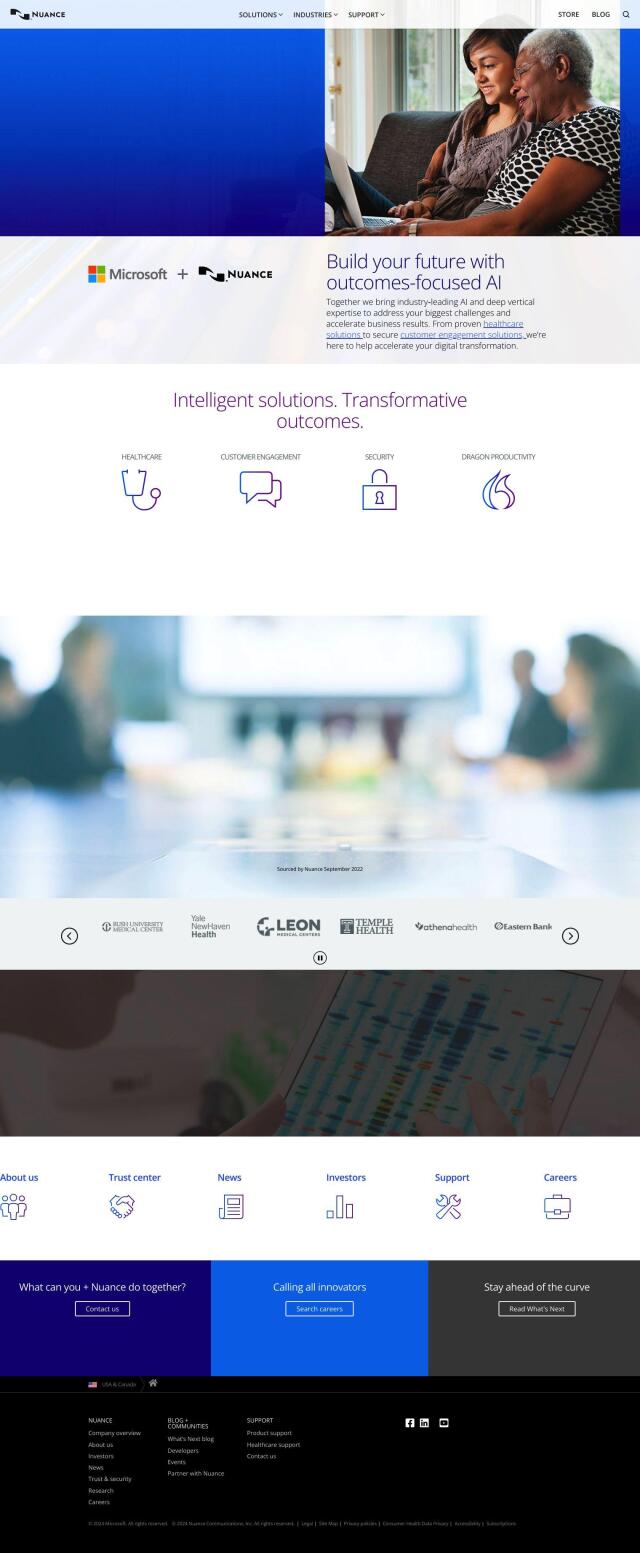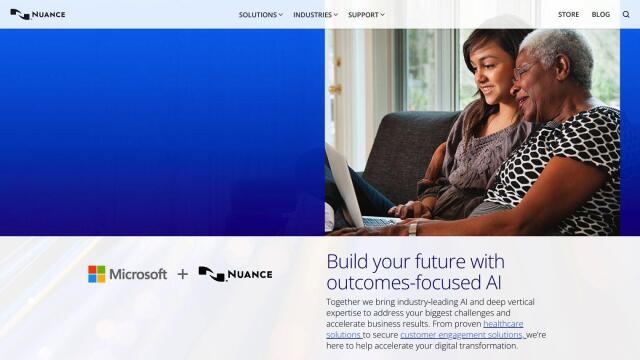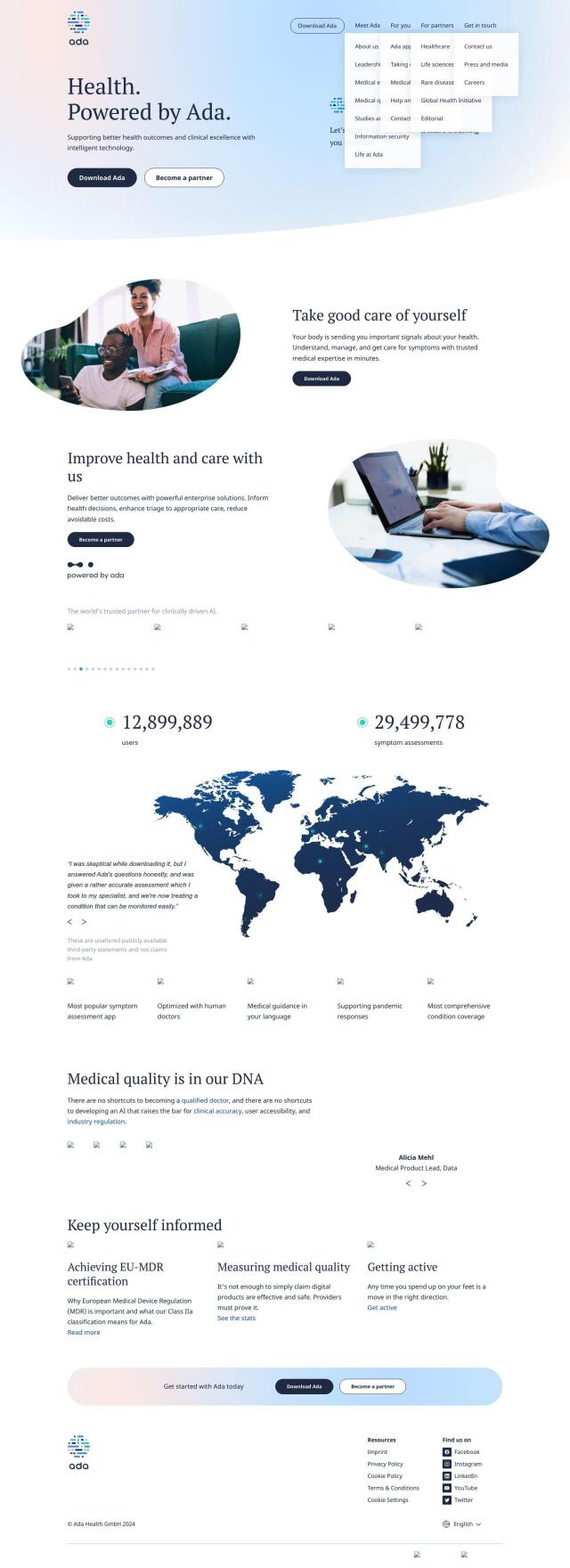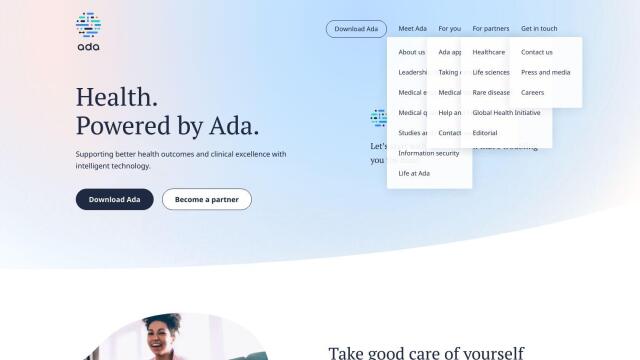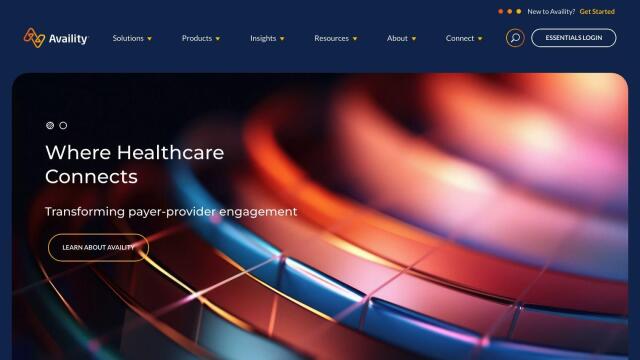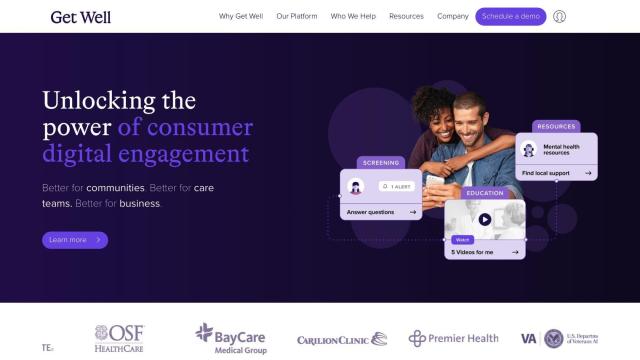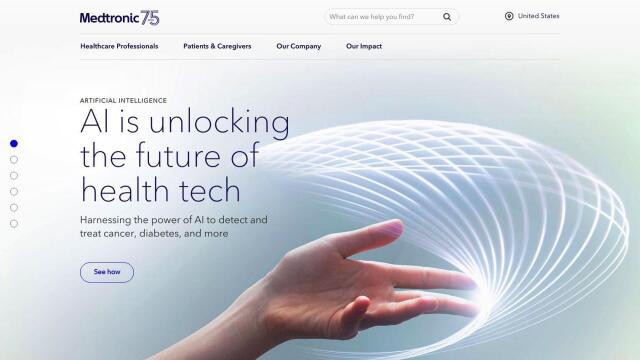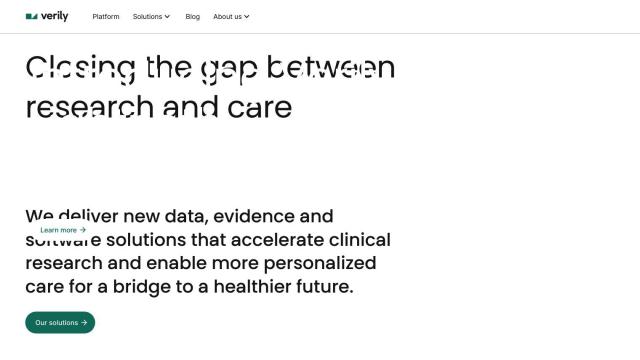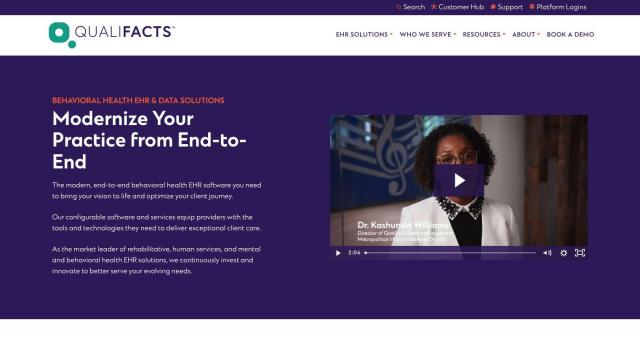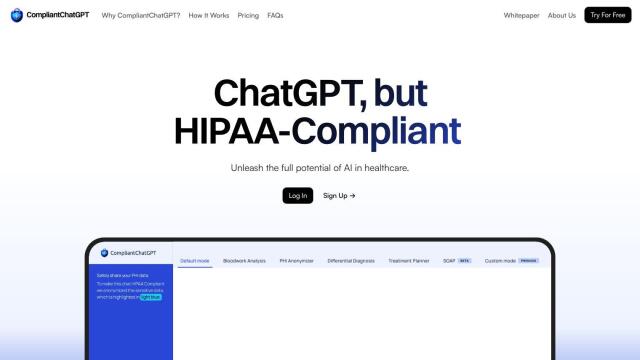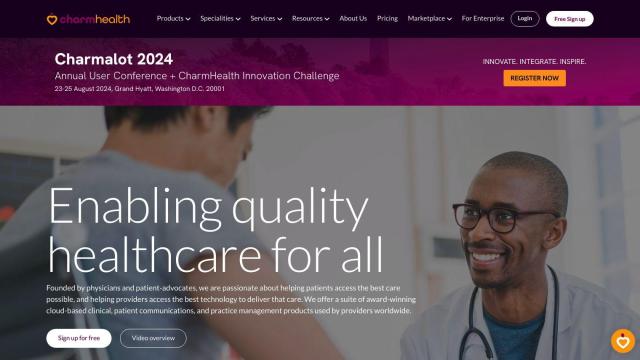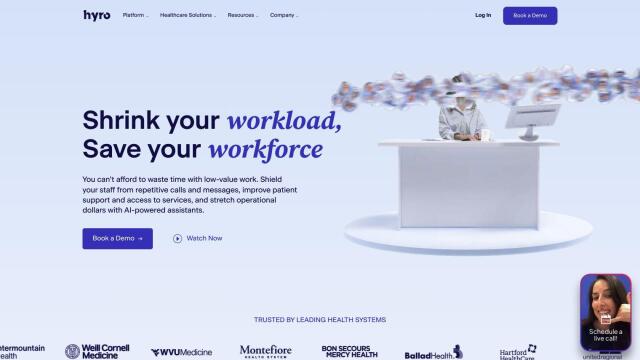Question: I'm looking for a healthcare platform that uses AI to reduce clinical workload and improve decision-making.

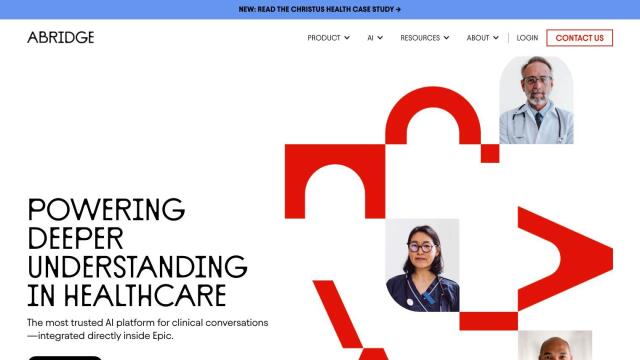
Abridge
If you're looking for a healthcare platform that uses AI to cut clinical work and improve decision making, Abridge is worth a look. This generative AI platform converts clinical conversations into structured notes that are directly integrated with Epic systems so providers can get to work faster. It offers real-time note generation, support for multiple languages, and verifiable notes that are validated against original conversation transcripts and audio recordings. Abridge eases documentation burdens, freeing up clinicians to spend up to 70 hours per month on higher value work and improving work-life balance.

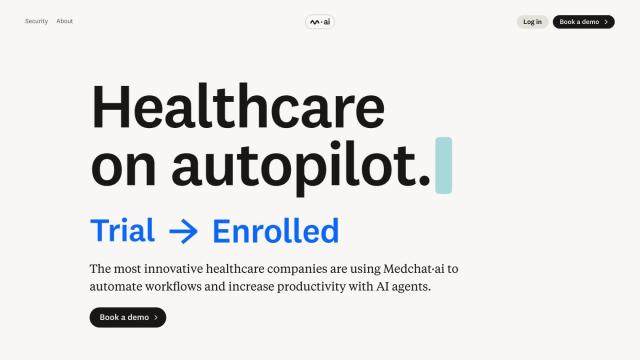
Medchat·ai
Another good option is Medchat·ai, an AI automation platform designed to automate healthcare workflows and increase productivity. It includes tools like Agent·ai for conversational AI experiences, Live Chat for AI-assisted human support, and Texting for automated communications. Medchat·ai integrates with core systems and is secured with SOC 2 Type II certification and HIPAA compliance, reducing provider hold times, improving patient engagement and saving annual FTE costs.

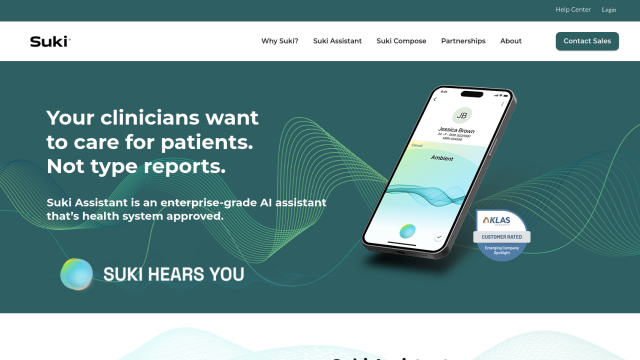
Suki
For those looking to automate clinical workflows with voice assistance, Suki is a powerful AI-powered voice assistant. It generates ambient notes, dictates text, suggests coding and answers questions to help clinicians focus on patient care instead of administrative tasks. Suki is deeply integrated with major EHR systems like Epic and Cerner and is HIPAA and SOC2 Type 2 compliant. Healthcare systems can realize significant cost savings and productivity gains by deploying Suki.

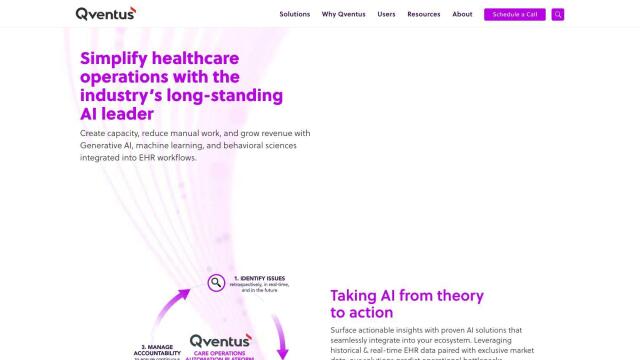
Qventus
Last, Qventus uses AI, machine learning and behavioral science to optimize patient flow and operational performance within EHR workflows. It automates tasks like phone calls, document processing and image processing to free up capacity and reduce manual work. Qventus' generative AI assistants optimize surgical scheduling, discharge planning and operational performance, with results like 6x ROI and a one-day reduction in length of stay.
